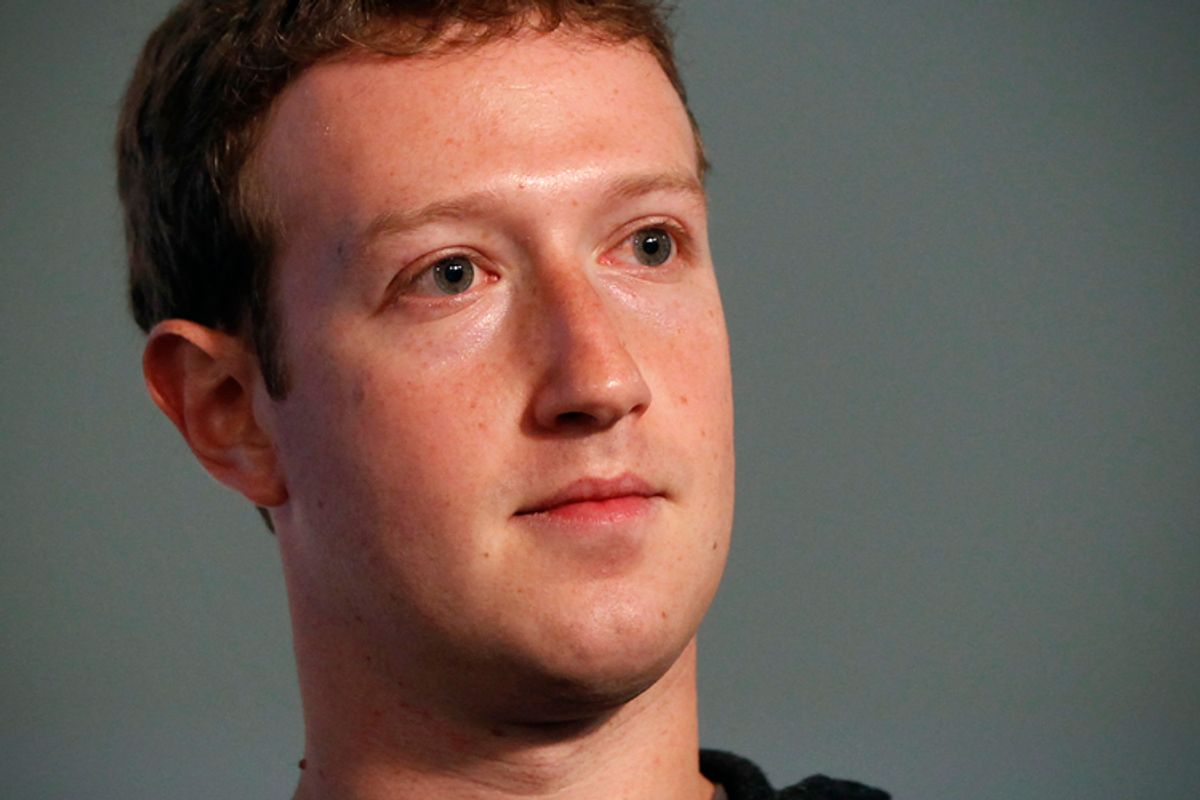Facebook is blowing up Facebook, on purpose. But it's not going to work.
Recent stories by Ryan Tate in Wired and Farhad Manjoo in the New York Times make a similar argument. The future of Facebook, on your phone, is a future composed of multiple separate apps, some of which may not have any direct branding connection to Facebook.
There are two news hooks here, alongside Facebook's obvious marketing push. The most recent is Facebook's announcement that it is discontinuing chat support in Facebook's mobile app. Henceforth, if you want to chat, or, as Facebook calls it, "message" someone, you will have to install Facebook's standalone Messenger app. The Messenger move follows upon Facebook's rollout, last month, of Paper, the company's standalone news-reading app.
Ryan Tate:
The resounding consensus among the Facebook experts I talked to is that the company is finally making the jump to thinking and acting like an app maker, a software company that keeps functionality narrow and targeted. While users may grow attached to services that work the way they’re used to, like the full-featured Facebook app, the growing Silicon Valley consensus is that people really want a more bite-sized future.
Farhad Manjoo:
Mr. Zuckerberg said the multi-app strategy is meant to adapt Facebook to the way people use mobile phones, which now account for the bulk of Facebook’s visits and advertising revenue. “In mobile, there’s a big premium on creating single-purpose, first-class experiences,” he said.
Observation No. 1: Neither Manjoo nor Tate acknowledge that the new strategy represents a complete reversal of Facebook's much hyped plans, announced a year ago, to take over the entirety of the mobile Facebook experience with "Facebook Home." That's understandable, because Facebook Home was an abject disaster. No one wanted Facebook to control their full mobile experience.
Observation No. 2: There's little evidence that the current strategy is working, either. Facebook Paper, despite its slick professionalism -- Manjoo calls it "one of the most arresting mobile products that any company, large or small, has put out recently" -- is going nowhere. Despite Facebook's best efforts, very few people appear enthusiastic about moving their Facebook Wall reading outside of Facebook.
Observation No. 3: It's annoying when companies decide, unilaterally, to force their customers to change their habits. I rarely chat on Facebook mobile, but I am still irritated by Facebook's presumption that I must become a Messenger user should I wish to do so. My grumpiness may be juvenile, but it's real.
Observation No. 4: People don't like Facebook, and they won't migrate to other Facebook services unless they have no choice.
I've made this argument before. Facebook operates at a disadvantage compared to its major competitors because its customers are not intrinsically loyal to the services it provides. We're there for one simple, overriding reason: Our friends and family are there. The network effect has us locked in.
Furthermore, Facebook has given us good reason, over the years, not to trust it. Facebook's abysmal track record on privacy, a legacy that dates back to Mark Zuckerberg's earliest days at Harvard, tells a compelling story.
This is not to say that we should be trusting any provider of online services with our loyalty. But we choose to give Amazon and Google and Apple our business because we believe their products and services have tremendous intrinsic value. Again: We choose Facebook because our friends are there.
Ironically, our lack of proper faith in Facebook may offer an explanation for Facebook's current strategy: erasing the Facebook brand. Farhad Manjoo concludes his article by suggesting that "If the new plan succeeds, then, one day large swaths of Facebook may not look like Facebook -- and may not even bear the name Facebook. It will be everywhere, but you may not know it."
That would be a strange kind of success, indeed. I wouldn't bet on it.



Shares